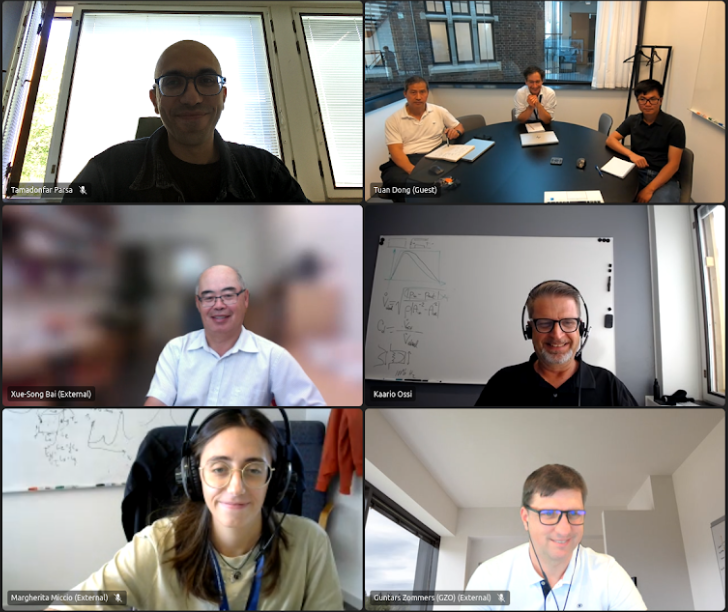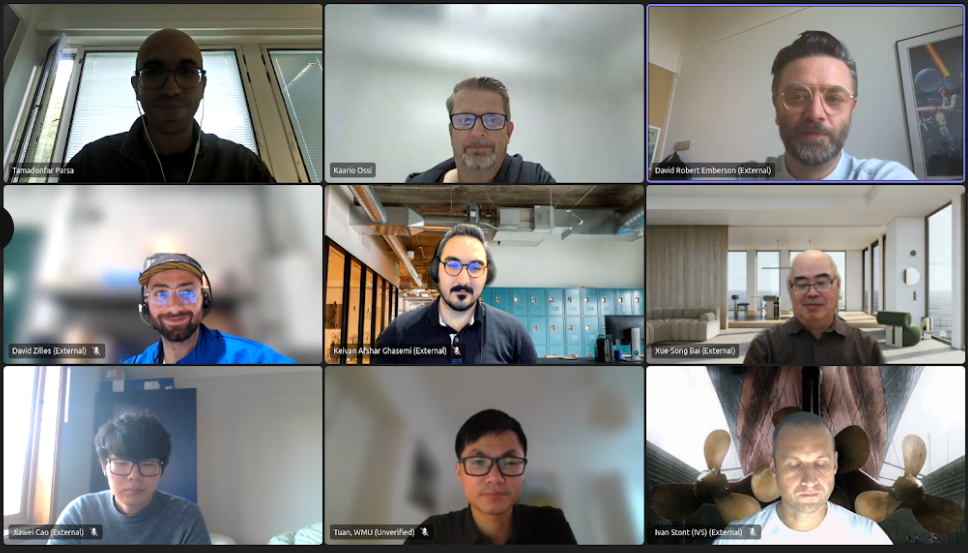Hi-EFECTS Research Update – October 2025
In September 2025, the Hi-EFECTS consortium has held several progress meetings to review the technical advancements across Work Packages. Below are some key highlights from our latest activities:
Aalto University
Researchers at Aalto University are currently analyzing the turbulent flame-wall interaction data using a direct numerical simulation dataset provided by Dr. Zirwes from the University of Stuttgart. Furthermore, Aalto University is investigating side-wall quenching of premixed laminar ammonia flames enriched with hydrogen, as well as their propagation inside crevices. In the experimental laboratory, they are investigating the ignition and flame propagation of ammonia mixtures inside a full-metal engine, and the methanol injection inside an optically accessible combustion chamber.
Recent publication: A numerical study of hydrogen enrichment effects on laminar methane/air flame propagation and emissions in crevices
NTNU – Norwegian University of Science and Technology
NTNU researchers have conducted ignition studies of ammonia and methanol using diesel and heptane in a constant volume combustion chamber, providing valuable insights into injection timing and fuel spray interactions. The next phase focuses on spray-to-spray interaction between fuels. Additional experiments have tested a bio-derived cetane improver blended with methanol, enabling single-fuel DI operation. NTNU is also modeling the same system using Converge CFD and exploring oxygen enrichment to enhance ignition.
Lund University
Lund University has analyzed NOx and N₂O emission mechanisms under RCCI combustion conditions using diesel/ammonia blends. In parallel, CFD simulations of the Wärtsilä W34 engine have progressed, with mesh generation and case setup completed. Collaborative efforts with Aalto University are ongoing to integrate DNS-based wall models into LES and RANS simulations.
Recent publication: Ignition, combustion modes and NO/N2O emissions in ammonia/n-heptane combustion under RCCI engine conditions
World Maritime University (WMU)
WMU has the initial assessment of the social impacts of alternative fuels and is currently working on the cost analysis (LCC) component of WP 3. These results contribute to understanding the broader sustainability implications of fuel choices and will be submitted to a scientific journal for publication.


